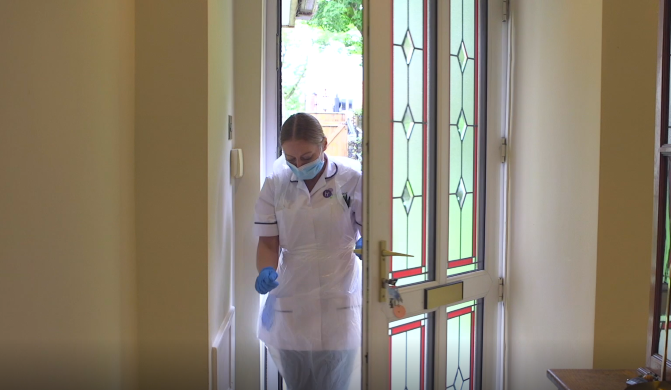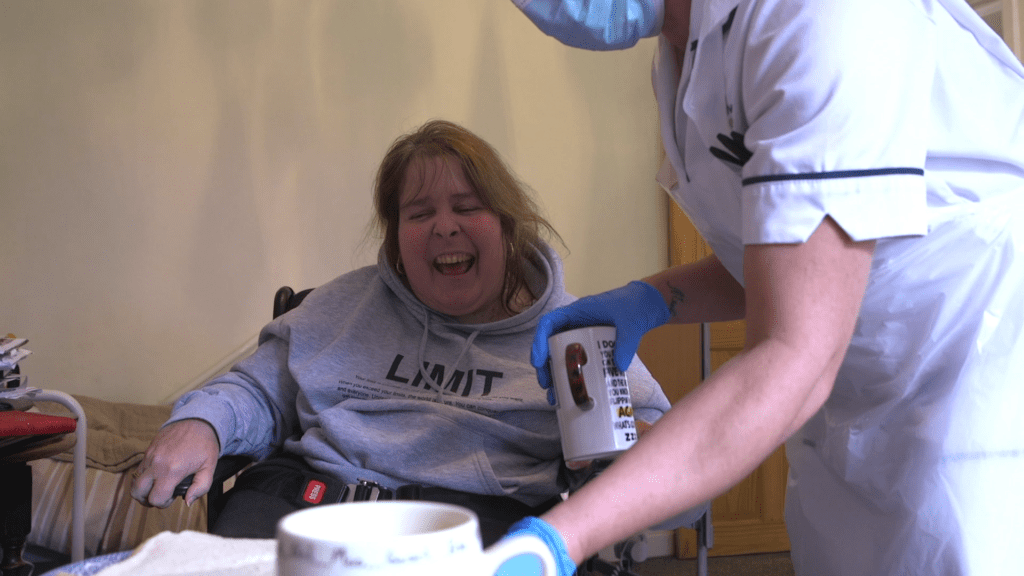As we get older it can be harder to get around and do things the same way we’ve always done them. This means that making the home more accessible can be increasingly important as we age. There are many ways that this can be done to make life easier, so we want to give you some pointers about making your home more accessible as you get older.
Whether you need to adapt your home now or just want to know options for your future or for a loved one, we want to help you to know what kind of options are available.
Getting In And Out
There are a few things that can help the entry of your home become more accessible. Firstly if you have steps in place and struggle to get up them, you can add a handrail to assist you. Or, if you are able you can get a ramp put in place. It can also become more of a struggle in the dark, so adding a sensory light can be really helpful.
Moving Around
Firstly, tackling the stairs isa big step if you like in a two story home. An extra banister being added or a stairlift being installed can make getting up and down the stairs much easier. If you have the space, you can look into having a through-floor wheelchair lift added – ensure that you confer with your landlord first if you are in a rental property.
When it comes to moving around your house on the day to day there are a couple of things you can consider.
- Adding motion sensor lights to each room ensures that the light comes on as soon as you enter a room without worrying about reaching the light switch. This can also help with automatically coming on when you get out of bed
- Widening door frames: this can help moving around easier especially if you have a wheelchair. Similarly, you can change the direction in which doors open for the same reason.
Answering The Door
If you find getting to the door difficult there are a couple of options that you have which can make it so you can speak to visitors and manage who is let in without having to physically be at the door. For example you could get:
- An Intercom – This allows you to communicate with who is at the door.
- A ‘Ring’ doorbell – Allowing you to see who is there and communicate with them without having to be physically at the door. Should there be a security issue, the doorbell can also be set to alert authorities on your behalf.
- A key safe – For trusted people, you can have a key safe fitted outside with a numerical lock that allows people with the code to retrieve a set of spare keys and let themselves into the property.

In the Bathroom
Adaptations to your bathroom can be incredibly helpful on a daily basis. For example: consider switching your bath for a ‘wet room’ style shower instead. If you have a bath, you can install a battery operated bath lift to help support you as you get in and out of the water. Equally, having a bath with a side opening can stop you from having to climb in and out.
Having a raised toilet seat installed is also a great idea as it stops you from having to lower yourself onto the toilet seat and lift yourself back off. You can also get long handled sponges or foot cleaning bath mats to save you from bending.
In The Kitchen
Appliances, particularly within the kitchen, can be heavy and cause issues. There are a few things that we think can make life a bit easier.
If you need a bit of help while cooking or making a hot drink, try:
- A perching stool which supports you in a near-standing position
- A kettle tipper to help you tilt the kettle
- A spike board which lets you cut or peel vegetables one-handed.
If you find picking up, opening or moving things in the kitchen difficult, try:
- Wide-handled cutlery
- High-rimmed plates and two-handled cups
- Assistive tin, bottle and jar openers
- A sturdy trolley to support mobility and help you move food and drink from room to room.
If You Have sensory problems
Navigating around can be a bit trickier depending on what kind of sensory problems you may have.
Sight Problems:
Be aware of and remove any trip hazards that may be about. Things such as loose carpets/rugs, trailing wires or general clutter being moved can be a quick way to help remove the chances of having a fall.
You can also try putting brightly coloured tape on the edges of stairs and other borders to make your home easier to navigate.
Hearing Problems:
Most importantly, make sure that you are safe in an emergency situation. Wireless smoke alarms are a must, they are connected by radio signals and if one goes off they all do. You can also get ones that use vibrating pads to get your attention should you miss an alarm, or a flashing light alarm.
Hopefully, some of the tips we have included can help you with making your home more accessible as you get older. There are always things that we can do






